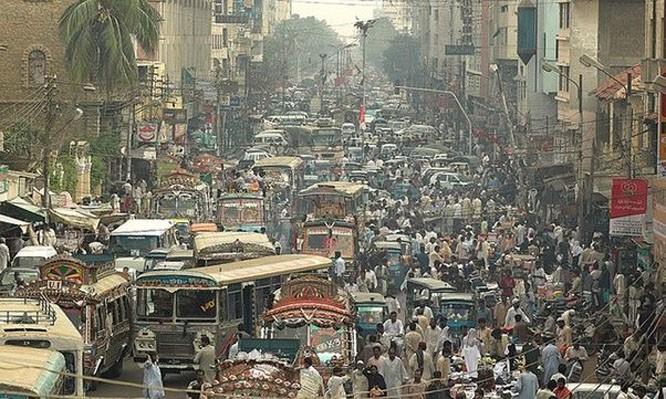
Sindh, too, is unhappy about the federal government plans of cutting provinces’ share

There is a difference of opinion between Pakistan Tehreek-e-Insaf-led federal government and Pakistan People’s Party-led Sindh government over the former’s plan to give three per cent share to the formerly Federally Administrated Tribal Areas (FATA) in the National Finance Commission (NFC) award by reducing the provinces’ share and setting up a high-level committee for Karachi’s development.
In the process of merging FATA into Khyber Pakhtunkhwa, several steps have been taken, such as renaming the political agents and agencies as deputy commissioners and districts respectively.
To allocate three per cent of the NFC award to FATA for the next ten years, the federal cabinet decided to cut the share of provinces in a meeting on October 18 chaired by Prime Minister Imran Khan.
"The cabinet has decided that the provinces would have to forego their share in the NFC award to give three per cent for FATA’s development," said Fawad Chaudhry, federal minister for information, while talking to the media.
It was also decided in the meeting of the federal cabinet to establish a high-level committee for the development of Karachi. The Karachi Infrastructure Development Company Limited will be revamped to make it more effective in executing projects. "There are complaints that the funds given for the development of Karachi were not properly utilised," said Chaudhry, adding that transforming the metropolis into a fully developed city is the key agenda of the PTI’s government.
The PPP, which won mainly from rural Sindh, has reacted showing its dismay over the plans, calling it a disrespect of the provinces on the part of the federal government.
Accusing the PTI government of exceeding its authority, the PPP leaders have said that Islamabad does not have the authority to reduce or make any adjustments in the share of the provinces.
"The federal government has no right to reduce the quota of provinces in the NFC award and all decisions regarding the award should be taken in accordance with the constitution," says Barrister Murtaza Wahab, advisor to chief minister Sindh on law and information.
Earlier, the Sindh Chief Minister, Syed Murad Ali Shah, had said that his government had already told the federal government in writing that Sindh contributes 60 per cent revenue to the divisible pool. Therefore, it should get its due share.
Being in power at the centre and two provinces-- Punjab and KP -- and a coalition partner in Balochistan with a regional party, the PTI has won most of the seats even from Karachi.
Political analysts say PTI’s plans about cutting provinces’ share may not be welcome to the federating units.
"The world is moving towards devolution and decentralisation for ensuring good governance but, regrettably, the PTI government is thinking about cutting the share of the provinces in the NFC award," says Dr Manzoor Isran, a political analyst based in Karachi. "The distribution of resources has a profound impact on income, development, backwardness, and poverty of a province. There is poverty and underdevelopment in Balochistan, Sindh, KP and Punjab, especially South Punjab. A cut in the provincial share will affect the socio-economic development, health and education sectors being the main victims."
The formation of a task force by the federal government on Karachi has also annoyed the PPP. Although in the July 25 general polls and in the following two by-polls in October, the PTI has managed to win most seats from the city, it still faces a great challenge: how to resolve Karachi’s civic issues: scarcity of drinking water, heaps of garbage, broken roads, choked sewerage lines, traffic jams, lack of public transport, air pollution and load-shedding.
Also read: A test case for PTI
Over the last decade or so, the PPP has been ruling the province while the Mutahidda Qaumi Movement represented the metropolis in the national and provincial assemblies as well as local bodies. Due mainly to neglect and mismanagement of these two parties, problems in the city have worsened in the past ten years.
Khurram Sher Zaman, a PTI lawmaker from Karachi, offered to mediate between the federal and Sindh government on this issue in the September 25 session of the Sindh Assembly. "Not just the province but Karachi, too, should get its due share of the resources," says Zaman, adding, "Karachi does not get the rightful financial resources it deserves."
Analysts suggest governments at the centre and Sindh should sit down, along with experts, and identify the problems that are afflicting Karachi. "We saw during the Musharraf-MQM-led regime that it brought more projects and more funds but did not solve any problem, nor did it create any sustainability; rather it aggravated the situation after the downfall of Musharraf in the shape of an uneven development. This too should be avoided by the PTI government," says Isran.
"New projects to solve the problems of Karachi are welcome but we need the kind of governance and projects that recognise the diversity of Karachi," he says.